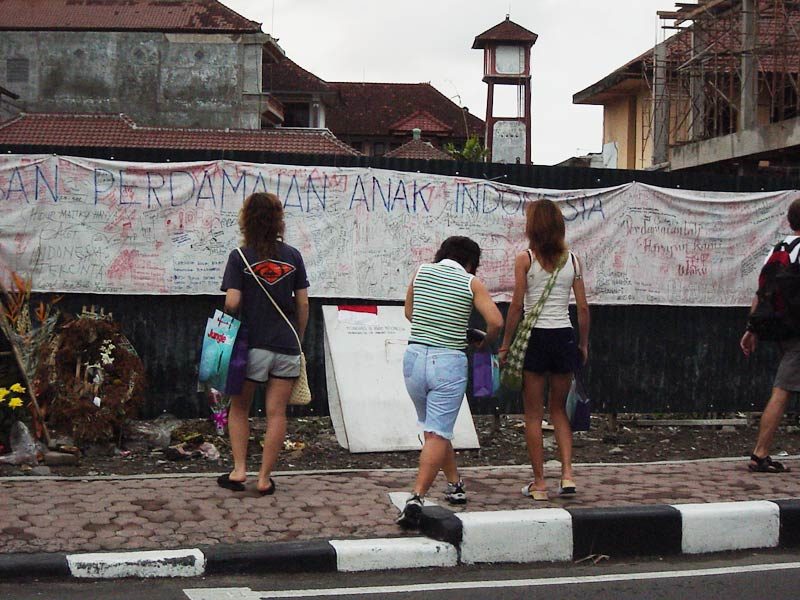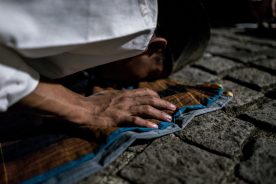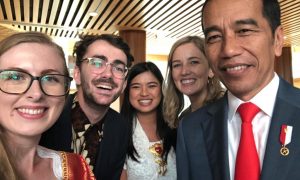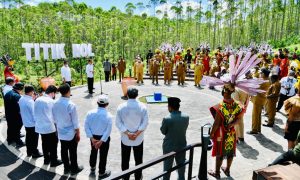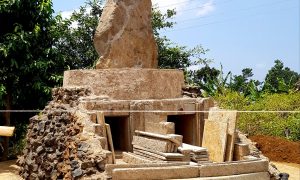Raids by Australian security forces (ASIO) and armed police on Indonesian migrant households in October 2002 were truly shocking for members of this community. Australia has a small but growing Muslim diaspora (augmented as a faith group by a growing number of Australian–born converts), totalling about 340,000 at the time of the 2006 Australian census, and about one quarter of the 50,000+ Indonesian-born residents recorded in the 2006 census are recorded as of Muslim faith.
Muslim migration only grew after a shift away from migration policy that the restricted non-white immigration (The White Australia policy) in the 1970s and an embrace of multiculturalism rather than assimilation as policy. This change appeared to herald tolerance of cultural and religious diversity, and was experienced by many immigrant Australians in this way.
But the global war on terror that led to moral panic, positioning Muslims as the enemy of western civilisation, especially following the destruction of the Twin Towers, tested this. The limits of tolerance of for Australian Muslims was revealed during the first Gulf war, when the most commonly reported act of violence against Muslims was tearing off women’s head scarves—an act anthropologist Ghassan Hage has termed the “governmental hand”.
The image of a civilisation under attack had special resonance for Australians when on 12 October 2002, members of the Indonesian Islamic organisation Jemaah Islamiyah bombed two popular tourist venues in Bali, regarded by many Australians as their own backyard playground. Australian casualties were the highest among foreign tourists, about equal to Indonesian numbers, and the event was officially declared Australia’s worst peacetime disaster. This atmosphere and feelings of “a civilisation under attack” provided the context for the October 2002 raids.
The Australian media reported that the raids were conducted because of an ostensible hostile act against the Australian nation: the people targeted had attended a lecture by Abu Bakar Bashir (jailed for his role in the bombings and released in 2006) regarded as the spiritual head of JI, when he had visited Australia under an alias in the 1990s. The raids followed quickly on the Federal Government’s proscription of JI as an illegal organisation in Australia on 27 October 2002, the very day the governor general signed it into law.
The speedy timing of raids were a shocking revelation that Indonesian Muslims in Australia (citizens and permanent residents) had already been under surveillance prior to the Bali bombing. Islamic religion and Indonesian cultural citizenship made them “not quite” Australian, sorely testing the image of Australian tolerance and commitment to multiculturalism.
Response to the raids in Australia—Muslims as the enemy within
The media accounts of the October 2002 raids presented a spectre rarely seen in Australia: “Armed ASIO agents and Federal Police fan out across Australia in search of links to Islamic extremism”; “Officers wearing balaclava and bullet proof vests” holding sub-machine guns (Australian Broadcasting Corporation “ASIO raid in Perth”, PM, 30 October 2002.)
They reported police using sledgehammers to break down doors and windows and “smash…their way into houses” at dawn. In the case of the Suparta family in Perth, heavily armed officers broke into their home in Thornlie (a suburb popular with Perth’s Asian migrant populations) and the parents and four children (aged 17, 10, 6 and 4) were ordered to the floor and kept there for half an hour. The oldest child, a 17-year-old girl, said officers pointed guns at them, and one officer put his foot on her father’s head and told him not to move.
After a seven-hour search, officers took away passports, books (including religious books), material downloaded from the internet, computers, and videos. Such actions were repeated in about 12 more homes of Indonesian Australians in Sydney, Melbourne and Perth. According to a Muslim leader (Yasser Solimi, president of Islamic council of Victoria) the ASIO and police raids had left people “confused, scared and stunned” (cited in The Age, 3November, 2002.)
Neighbours interviewed by the press expressed shock. In Perth, neighbour Helena Joyce told ABC radio (Australian Broadcasting Corporation ‘ASIO raid in Perth’, PM, 30 October): “..And I saw several men in, I guess combat or whatever the SWAT people wear, you know, the black helmets, the black balaclava, the ski glasses, the black clothing, some machine guns. So I was terrified.”
The reporter David Weber asked: “Do you know the family well?” and expressing a view apparently at odds with the official “othering”, the neighbour replied: “Yes I do, Yep, we’ve lived here for almost three years and they’ve been here since before we came here. Um, they’re Australian citizens like everyone else, I guess and they’re a very nice family. All I could think of is they’ve got the satellite dish and they are originally from Indonesia?”
Another neighbour commented: “They do their yard. I always walk by to go to the Thornleigh shopping centre and their appearance to me is a very quiet, nice family, and that’s all I know…” When the reporter asks if he “would be surprised if you knew that…” the man cuts him off, replying: “Very surprised. Very, very surprised. Very quiet, nice man out in the front doing the yard. He says hello. They are ethnic people but they’re lovely, very nice people.”.
The neighbours’ comments, that the Suparta family are a “nice family, who do their yard and say hello” indicates a “grass roots” vernacular multiculturalism in that they are judged by their performance of the quotidian attributes of Australian belonging.
The Director General of ASIO (Australian Security and Intelligence Organisation) denied the report that the people raided were suspect because they had attended lectures by the JI spiritual leader in the 1990s; but one of the men raided, Jaya Fadli Basil said to the media that the paperwork he had been shown indicated that they were investigating anyone with JI links. He said that he had always done the right thing, had no terrorist links and the only reason he was raided is that he had been interested in the religious lectures of Abu Bakar Bashir in the 1990s. Jaya Fadli Basil said he now felt he was not welcome in Australia “since the Bali bombing, a lot of our community got abuse”.
Challenges to Countering Violent Extremism in Indonesia
The dominant counter-terrorism policy paradigm is unnecessary limiting, and sometimes counter-productive.
According to one newspaper, all of the dozen people aided had some link to the JI leader during his Australian visit: one had driven him around, another had invited him to lunch after a lecture at the Dee Why Mosque. One of the men raided said he had been interviewed by ASIO previously as he knew Mamdouh Habib, at that time detained in Guantanamo Bay. Habib was, he said, as the father of one of his son’s school friends. He had also attended the Abu Bakar Bashir lectures “I only went to hear him speak. That is all I did. I have never heard of Jemaah Islamiah” (reported in Sun Herald, 3 November).
For Australians concerned with civil rights the raids—and the legislation that enabled them—signalled a diminution of civil rights. The president of the NSW Council on Civil Liberties was quoted: “If these people are supposed to be terrorists they should be charged and brought before a court of law. The fact that there have been so many raids and that none have been charged suggests that there is no evidence. It suggests that this is a fishing exercise or a publicity stunt.” (reported in The Age, November 1, 2002).
The Chairman of the Islamic Council of NSW made a similar comment and linked the raids to the conditions in the undemocratic regimes that migrant refugees had fled: “We are not opposed to any Australian resident being required to assist ASIO or other government agencies in defending Australia at any time. But this must be achieved within the rule of law and using no more force than necessary to secure the required outcome. I believe the raids have not been appropriate or reasonable responses to any threats stated to date. Young families have been overwhelmed by the force and violence of the raids. Many Muslims fled war, bloodshed and violence to build a secure life here. To stop that chaos erupting on our shores must be the priority and we will work with whoever asks us to keep Australia safe. However, for the authorities to storm into our homes and lives in this fashion brings those traumas and fears into our living rooms.”
It was reported in 2003 that no one was ever charged as a consequence of the raids
The Indonesian ambassador at the time, Imron Cotan, leapt to the defence of the households who had been raided even though many of them were no longer Indonesian citizens. In an exchange with the host of a TV current affairs programme he said: “We are deeply concerned about the way the ASIO as well as Federal Police, conducted the operations because that concerned Indonesian citizens…We are here to protect our citizens.”
In response the host, Tony Jones, pointed out that both Indonesian and Australian citizens had been targetted in the raids, and treated in the same way; Ambassador Cotan stressed again that his role was to act according to his mission to protect Indonesian citizens.
Ambassador Cotan’s response was not entirely at odds with the affective response of many Indonesians resident in Australia who saw themselves as under attack for their Indonesian Muslim identity. This invoked a discourse of suspicion of their right to belong in an Australian nation that was closing off the embrace of cultural and religious diversity, which Islam had then only recently, and cautiously, been allowed into.
Unlike many other Muslim groups in Australia Indonesian migrants are not refugees: they have entered Australia as skilled or business migrants, and on family visas, for example when they marry Australians. Many of them were caught unawares by the rapidly changing politico-religious landscape in Indonesia following the fall of the Suharto regime in 1998, which saw the rapid growth of Islamist movements, many at odds with customary forms of tolerant and liberal Islam, some espousing violence in pursuit of their ideological aims. One woman, who had married and moved to Australia decades before, expressed the dilemma to me, saying the rapid changes left Indonesian Muslims in Australia vulnerable. She said, “We have to watch our backsides,” meaning that Australian Indonesian Muslims were at risk of becoming unwittingly embroiled with extreme religious movements through innocent acts of attending lectures by visiting clerics. Her solution was to begin an organisation that would facilitate people like herself obtaining up-to-date advice from people more knowledgeable about the contemporary religious landscape in Indonesia, such as students with religious education background, or Indonesian diplomats.
The raids threw apparent certainties onto question, indicating that Indonesian Muslims had been under surveillance, and their loyalty to the Australian nation under question for some time. Citizenship does not automatically confer certainty of belonging to the nation. Indonesian cultural citizenship has been embraced as a way to gain knowledge to protect themselves from future risks in the politico-religious landscape.
 Facebook
Facebook  Twitter
Twitter  Soundcloud
Soundcloud  Youtube
Youtube  Rss
Rss 